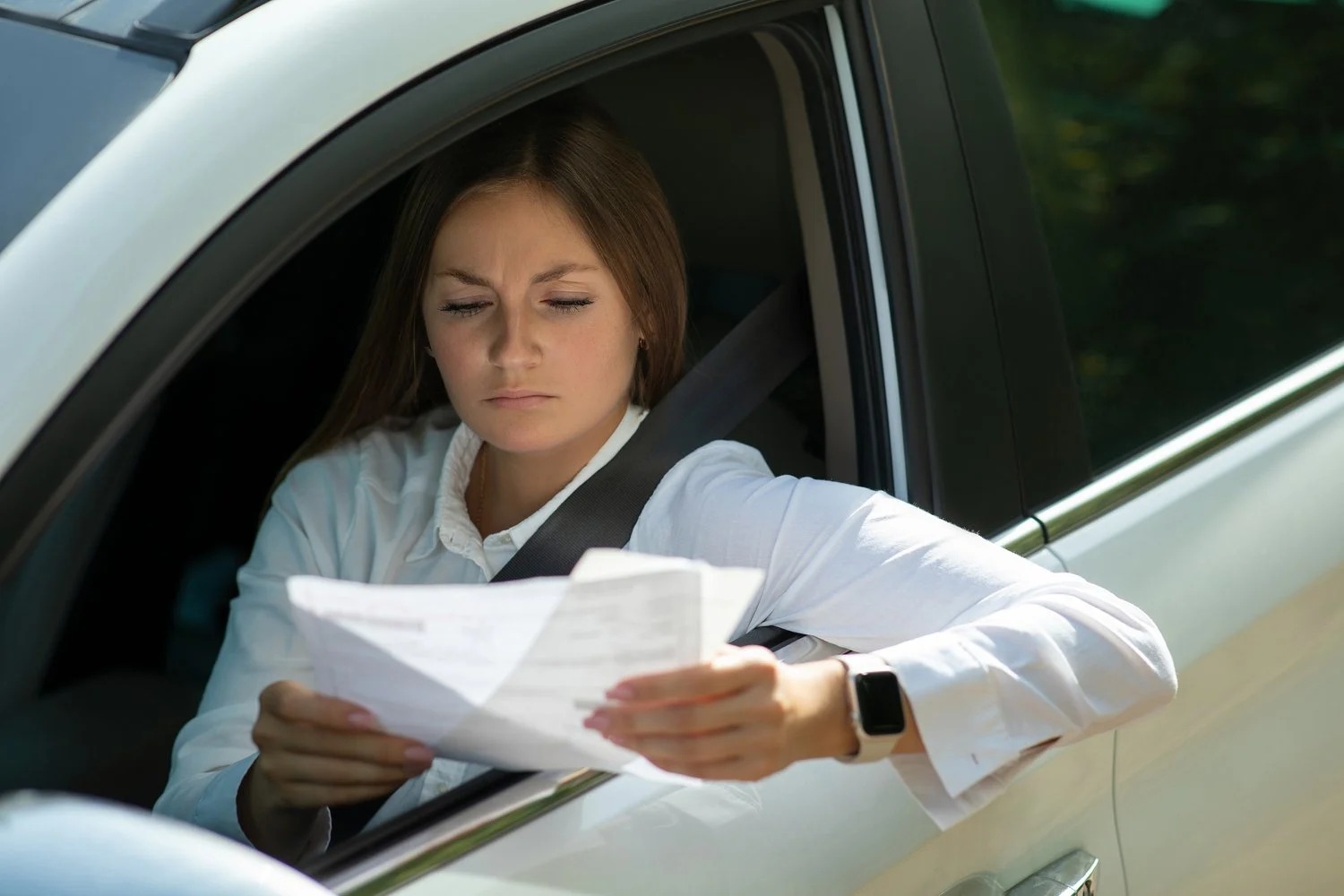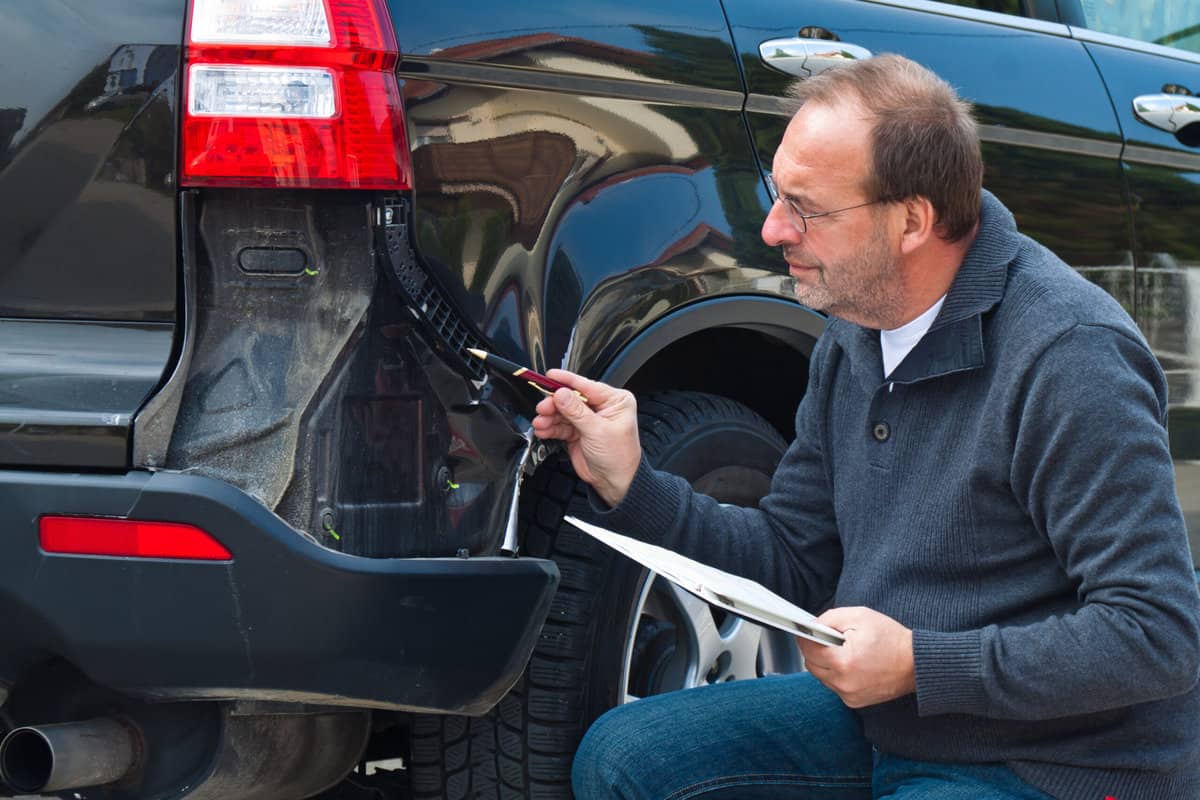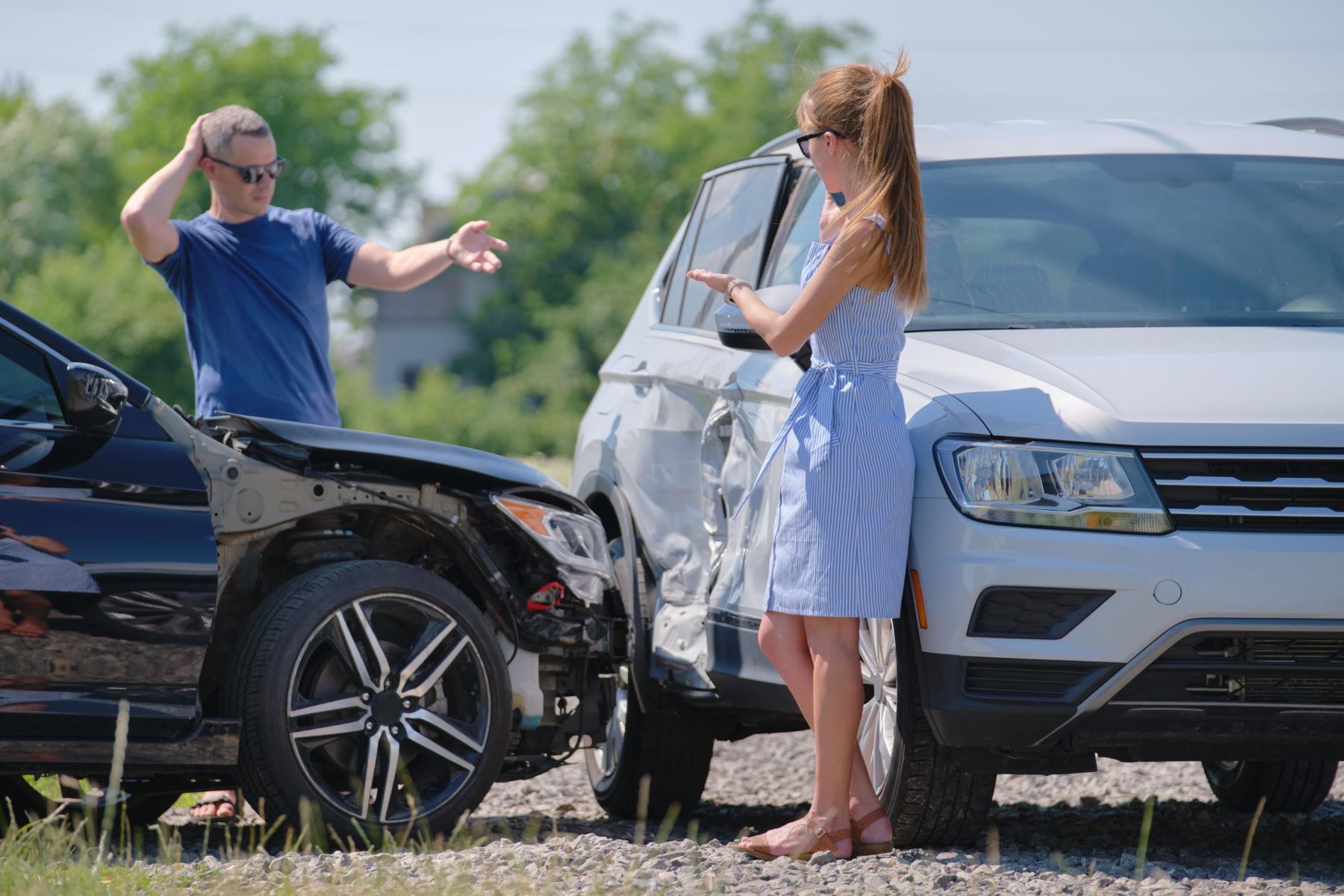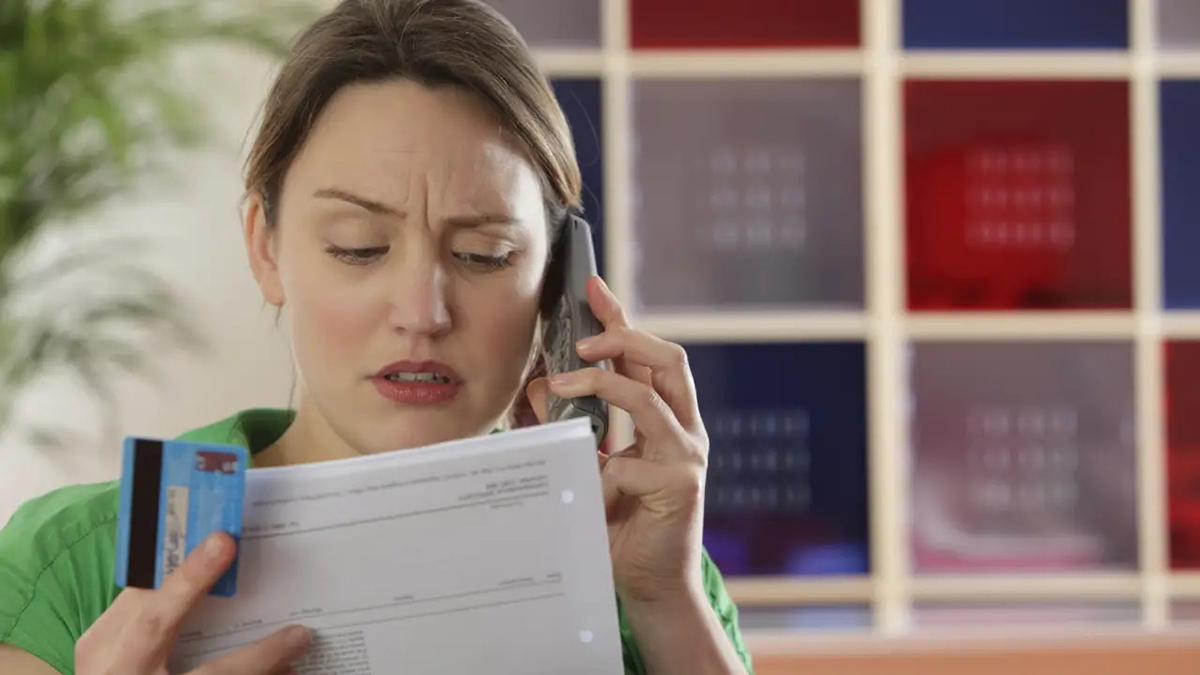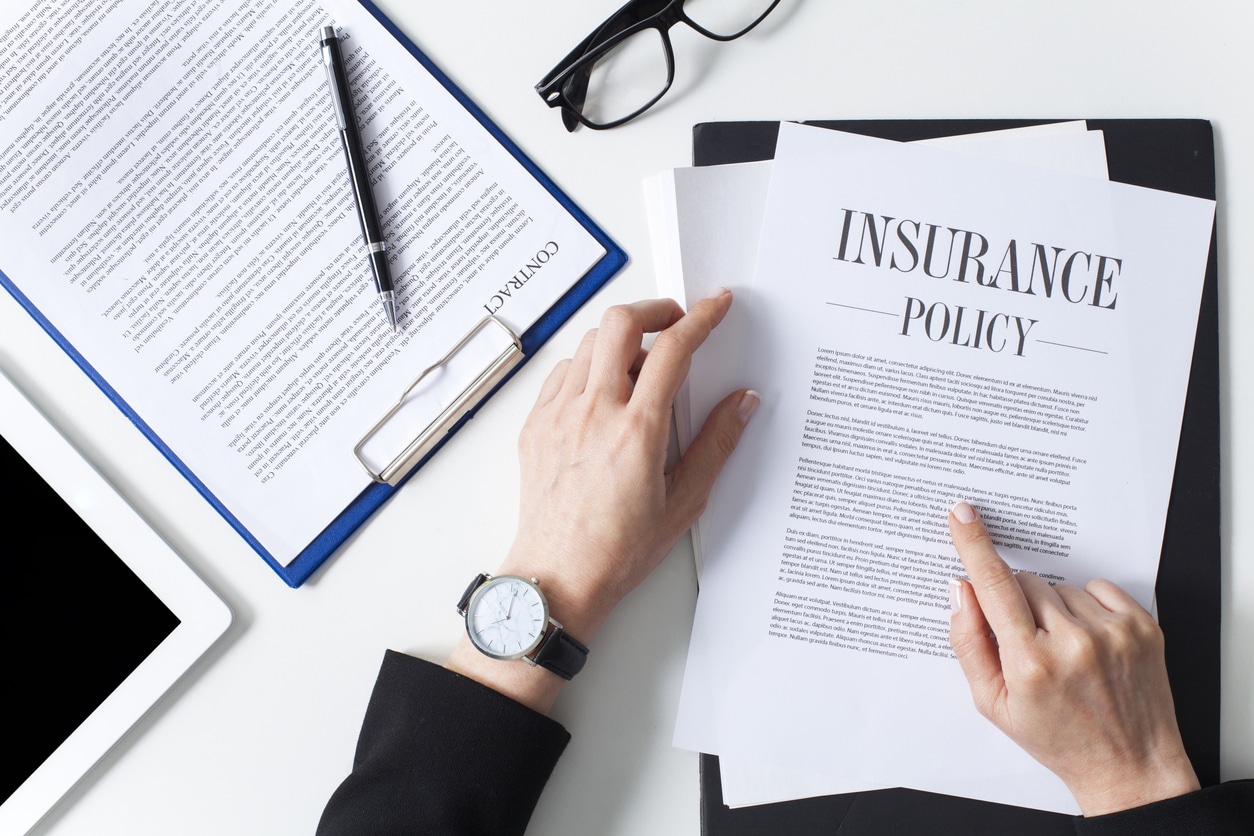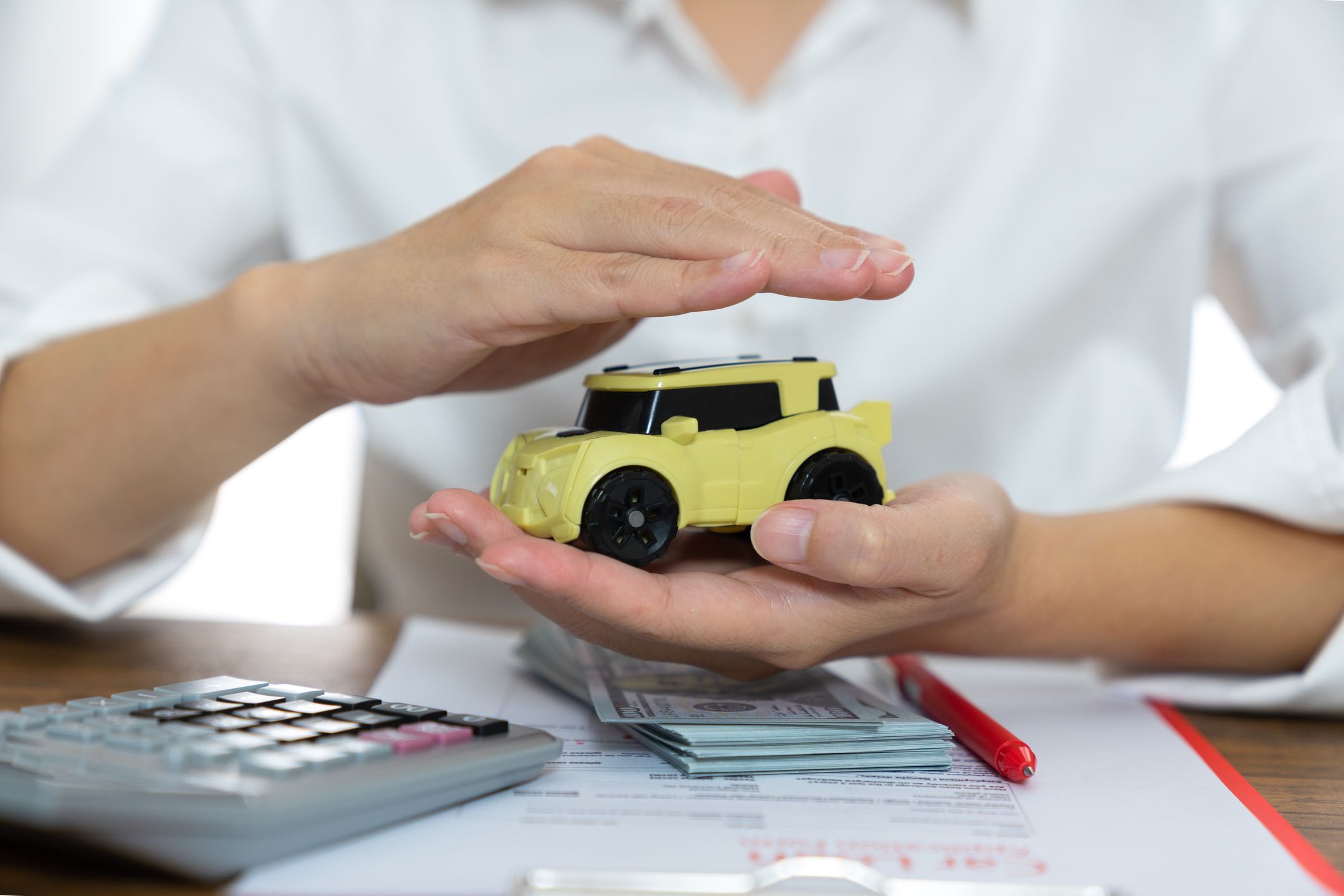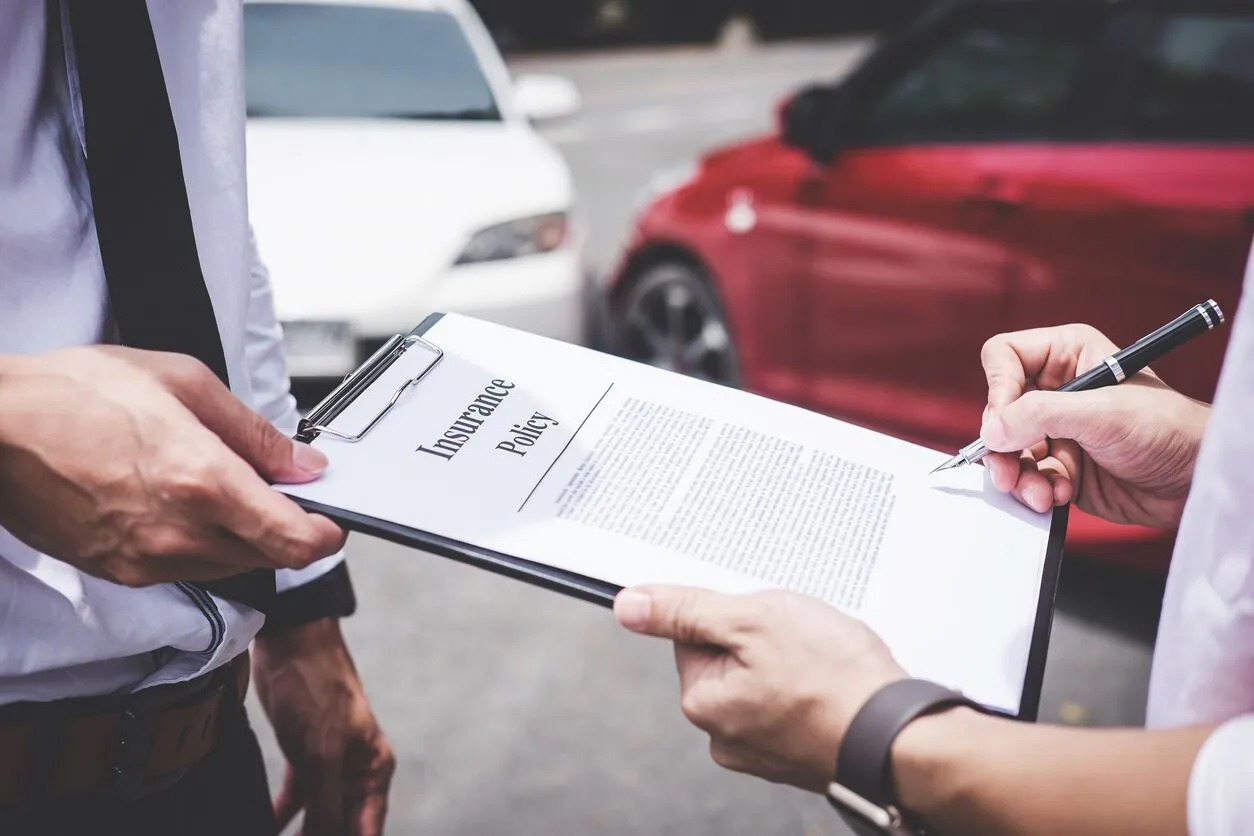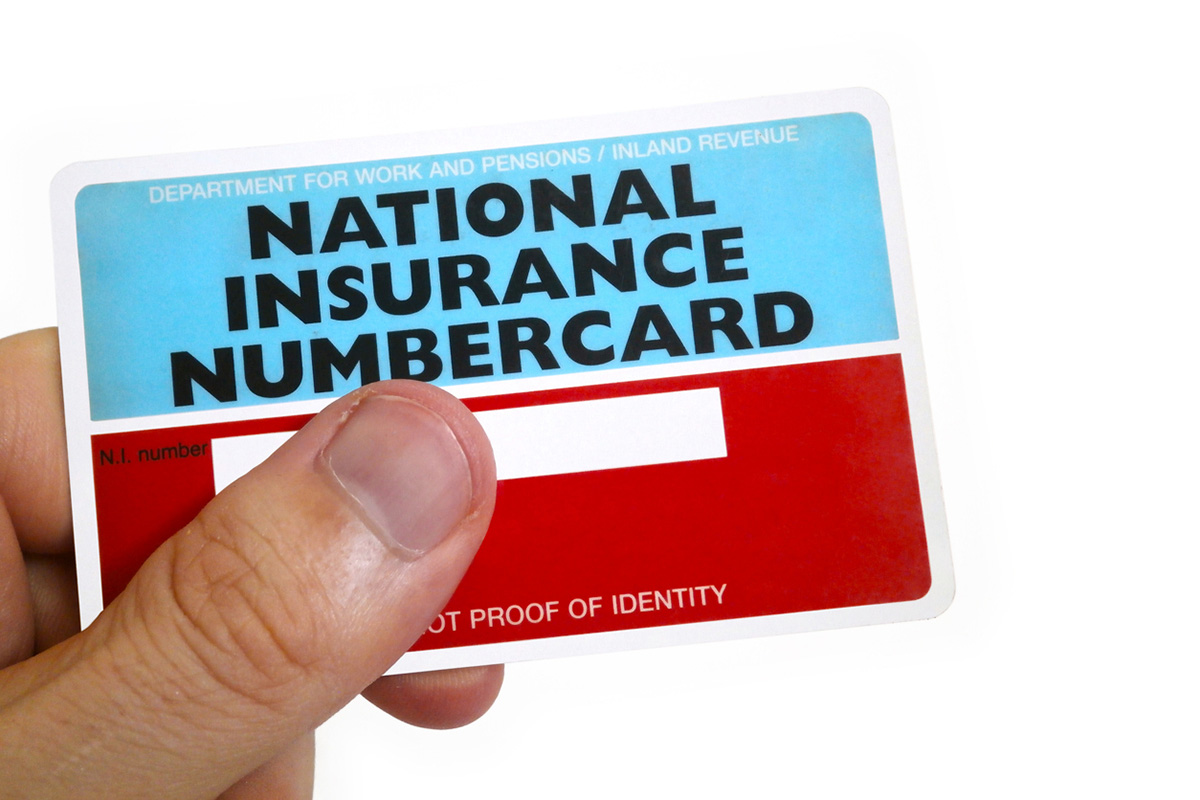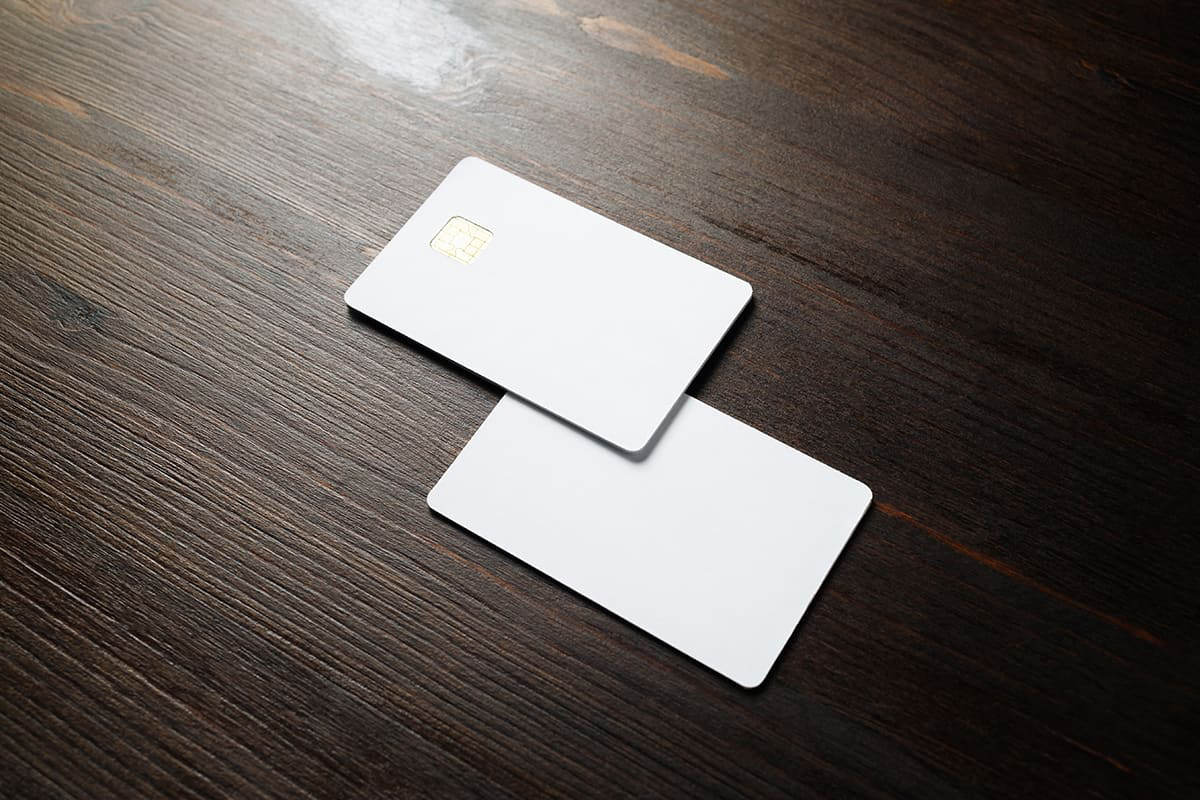Home>Finance>What Happens If Someone Wrecks Your Car And They Aren’t On Your Insurance?
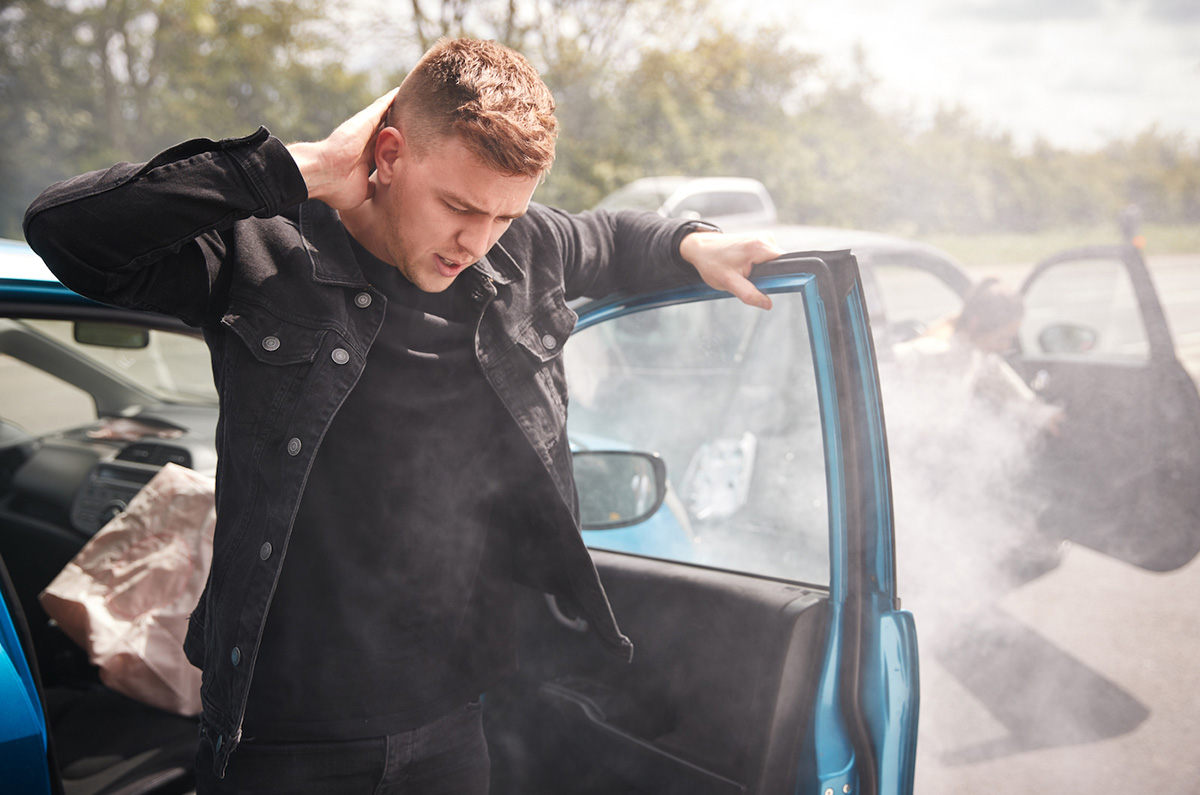

Finance
What Happens If Someone Wrecks Your Car And They Aren’t On Your Insurance?
Published: November 17, 2023
If someone wrecks your car and they aren't on your insurance, you may be left with financial responsibility for the damages. Ensure you have proper coverage to protect your finances.
(Many of the links in this article redirect to a specific reviewed product. Your purchase of these products through affiliate links helps to generate commission for LiveWell, at no extra cost. Learn more)
Table of Contents
Introduction
Getting into a car accident is a stressful and unfortunate event. It becomes even more complicated when the person responsible for wrecking your car is not listed on your insurance policy. But what happens in such a situation? Are you still covered? Who is liable for the damages? These are important questions that need to be answered.
Insurance coverage plays a crucial role in protecting you and your vehicle in the event of an accident. It provides financial relief to cover repair costs, medical expenses, and other associated damages. However, the coverage depends on the terms and conditions of your policy and the parties involved.
When someone not listed on your insurance wrecks your car, the situation can become quite complex. It is essential to understand your insurance coverage and know the steps to take to ensure that you are properly compensated for the damages.
In this article, we will delve into the intricacies of what happens when someone wrecks your car and they are not on your insurance policy. We will explore the liability for damages, the necessary steps to take, and how to navigate the insurance process.
It is important to bear in mind that the information provided here is a general guide and may vary depending on your specific insurance policy and local regulations. Consulting with an insurance professional or legal advisor is recommended for personalized advice based on your situation.
Understanding Insurance Coverage
Before delving into the specifics of what happens when someone not on your insurance wrecks your car, it is crucial to have a clear understanding of your insurance coverage. Insurance policies typically include different types of coverage, such as liability coverage, collision coverage, comprehensive coverage, and uninsured/underinsured motorist coverage.
Liability coverage is the most basic type of auto insurance coverage and is required by law in most states. It helps cover the costs of property damage and medical expenses if you are at fault in an accident. This coverage typically applies to damages caused by you, the insured driver, to other vehicles or property.
Collision coverage, on the other hand, helps pay for the damages to your vehicle if you are involved in a collision with another vehicle or an object. This coverage is useful regardless of who is at fault in the accident.
Comprehensive coverage provides protection against damages to your vehicle that are not caused by a collision, such as theft, vandalism, or damage from natural disasters.
Finally, uninsured/underinsured motorist coverage protects you if you are in an accident with a driver who does not have insurance or whose insurance is insufficient to cover the damages.
It is important to review your insurance policy to understand the specific coverage you have and the limits of each type of coverage. This knowledge will help you navigate the situation when someone not on your insurance wrecks your car.
Furthermore, it is worth noting that insurance coverage can vary from one policy to another, so it is essential to familiarize yourself with the terms and conditions of your specific policy. Understanding the details of your coverage will provide clarity on what you can expect in the event of an accident involving someone not on your insurance policy.
Liability for Damages
When someone not on your insurance wrecks your car, determining liability for the damages is a critical aspect. Liability refers to the legal responsibility for the accident and the resulting damages. In most cases, the at-fault driver is responsible for covering the costs of the damages.
If the person who wrecked your car is at fault for the accident, their liability insurance should typically cover the damages. However, if the driver is not insured, or their insurance coverage is insufficient, you may need to rely on other avenues to recoup the damages.
One option is to file a claim with your own insurance company. If you have collision coverage, your insurance provider may cover the cost of repairs to your vehicle, subject to any deductibles or policy limits. Keep in mind that filing a claim with your insurance company could impact your premiums.
Another option is to pursue legal action against the at-fault driver to recover the damages. This route may be necessary if the driver is not cooperating or does not have insurance coverage. Consulting with an attorney specializing in personal injury or auto accidents can help you understand the legal options available to you in your specific jurisdiction.
It is important to gather as much evidence as possible to support your case. This may include photographs of the accident scene, witness statements, and any other relevant documentation. Providing this evidence to your insurance company or presenting it in court can strengthen your position and increase the likelihood of receiving compensation for the damages.
Ultimately, determining liability for the damages will depend on the specific circumstances of the accident, the insurance coverage involved, and the applicable laws in your jurisdiction. Consulting with an insurance professional or attorney can provide valuable guidance and ensure that you take the appropriate steps to protect your interests.
Steps to Take If Someone Not on Your Insurance Wrecks Your Car
Being involved in a car accident can be overwhelming, especially when the responsible party is not listed on your insurance policy. To ensure that you navigate the situation effectively, it is important to take the following steps:
- Ensure safety: After the accident, the first priority is to ensure the safety of all individuals involved. Check for injuries and if necessary, call emergency services for medical assistance.
- Exchange information: Gather the contact and insurance information from the other driver involved in the accident. This includes their name, phone number, address, driver’s license number, and insurance company details.
- Contact the police: Regardless of the severity of the accident, it is advisable to contact the police and file a police report. This report will serve as official documentation of the incident and may be required by your insurance company.
- Document the scene: Take pictures of the accident scene, capturing the damages to your vehicle, the other vehicle involved, and any other relevant details. This visual evidence can be valuable for insurance claims or legal proceedings.
- Notify your insurance company: Contact your insurance company as soon as possible to report the accident. Provide them with all the necessary information, including the details of the other driver and their insurance coverage. Your insurance company will guide you through the claims process and advise you on the best course of action.
- Get your vehicle assessed: Take your car to a trusted mechanic or an approved repair shop to assess the damages. Obtain a detailed estimate for the repairs required, including labor and parts costs. This information will be crucial when filing your insurance claim.
- Cooperate with the insurance investigation: Your insurance company will conduct an investigation to determine liability and assess the damages. Cooperate fully with their investigation and provide any requested documentation or statements promptly.
- Consider seeking legal advice: If the responsible party is uncooperative or their insurance coverage is insufficient, you may need to seek legal advice. An attorney specializing in personal injury or auto accidents can help you understand your rights and options for pursuing legal action.
Remember, each situation may have unique factors that influence the appropriate actions to take. Consulting with an insurance professional or attorney can provide personalized guidance tailored to your specific circumstances.
Contacting the Insurance Company
After a car accident involving someone not on your insurance policy, one of the crucial steps to take is contacting your insurance company. This will initiate the claims process and ensure that your case is handled promptly and efficiently.
When contacting your insurance company, be prepared with the following information:
- The details of the accident: Provide a clear and concise account of how the accident occurred, including the date, time, location, and any relevant details about the other driver.
- Insurance information of the other driver: Share the details of the other driver involved in the accident, including their name, contact information, and insurance company information.
- Police report: If you filed a police report, provide the insurance company with a copy of the report or the report number. This will help establish the official record of the incident.
- Witness statements or evidence: If there were witnesses to the accident or any other evidence, such as photographs or videos, provide those to the insurance company. This will help support your claim and provide a clearer picture of the accident.
When communicating with your insurance company, it is important to be factual and provide accurate information. Do not admit fault or speculate on the responsibility for the accident. Stick to the facts and let the insurance company handle the investigation and liability determination process.
Keep in mind that the claims process may involve multiple communications with your insurance company. They may request additional documentation or information to assess the damages and determine liability. Cooperate fully with their requests and provide timely responses to ensure that your claim progresses smoothly.
It’s also important to understand your insurance policy and the coverage it provides. Review your policy documents to familiarize yourself with the terms, conditions, deductibles, and limits of your coverage. This will help you have a clear understanding of what to expect during the claims process and any potential out-of-pocket costs.
Overall, contacting your insurance company promptly and providing them with all the necessary information will help expedite your claim and increase the likelihood of a favorable outcome.
Filing a Police Report
After being involved in a car accident where the other driver is not on your insurance policy, it is important to file a police report. A police report serves as an official documentation of the incident and can be essential for insurance claims and legal proceedings.
Here are the steps to follow when filing a police report:
- Assess the situation: Make sure everyone involved in the accident is safe. If there are any injuries or immediate medical attention is needed, call emergency services right away.
- Notify the authorities: Contact the police immediately to report the accident. The police report should be filed as soon as possible, preferably at the scene of the accident. If it is not possible to do so at the scene, go to the nearest police station to file the report.
- Provide accurate details: When speaking with the police, provide accurate and detailed information about the accident. Include the date, time, and location of the accident, as well as a description of what happened. Be as specific as possible and avoid making assumptions or speculations about fault.
- Cooperate with the police: Answer the police officer’s questions truthfully and provide any requested documents or information. If there are any witnesses to the accident, provide their contact information to the police officer as well.
- Request a copy of the police report: After filing the police report, request a copy for your records. This report will include important details about the accident, such as the officer’s observations, statements from involved parties, and any citations issued. The police report can serve as valuable evidence when dealing with insurance claims or legal matters.
Having a police report can strengthen your case when dealing with insurance companies. It provides an official record of the accident and helps establish the facts surrounding the incident. The report may also include the officer’s opinion on fault, which can be helpful in determining liability.
Remember, it is important to file a police report even if the accident seems minor or if the other driver is cooperative and willing to settle the matter privately. A police report adds an additional layer of documentation and protects your interests in case disputes arise later on.
By promptly and accurately filing a police report, you can ensure that the necessary information is on record and accessible for any future insurance or legal proceedings related to the accident.
Assessing the Damages
After a car accident involving someone not on your insurance policy, it is crucial to assess the damages to your vehicle. Properly assessing the damages will help determine the extent of repairs needed and the financial impact of the accident.
Here are the steps to take when assessing the damages:
- Document the damages: Take photos of your vehicle from multiple angles, capturing all visible damages caused by the accident. This visual evidence will be useful in filing an insurance claim and providing documentation for any legal proceedings.
- Seek professional assessment: Take your vehicle to a trusted mechanic or an approved repair shop for a detailed assessment. They will thoroughly examine the car and provide an estimate of the damages, including the cost of parts and labor required for repairs.
- Obtain multiple estimates: It is a good practice to obtain estimates from multiple repair shops to ensure a fair assessment of the damages. This will help you make an informed decision about where to have the repairs done and provide supporting evidence if there are discrepancies in the estimates provided by different shops.
- Consider the value of your vehicle: If the damage is extensive and the cost of repairs is close to or exceeds the value of your vehicle, the insurance company may consider the car a total loss. In this case, they will compensate you for the actual cash value of the car at the time of the accident, minus any applicable deductibles or salvage value.
- Understand your insurance coverage: Review your insurance policy to understand the coverage you have for repairs or replacement of your vehicle. Be aware of any deductibles that may apply and the maximum reimbursement limits. This will help you manage your expectations and make informed decisions.
Additionally, it’s important to remember that assessing the damages may also include evaluating any additional expenses resulting from the accident, such as medical bills, rental car expenses, or lost wages. Keep track of any costs you incur as a direct result of the accident, as these may be eligible for reimbursement through the insurance claim.
By thoroughly assessing the damages and obtaining professional estimates, you will have a clear understanding of the financial impact of the accident. This information will be crucial when working with your insurance company to seek compensation for repairs or replacement of your vehicle.
Pursuing Legal Action
In some cases, after a car accident involving someone not on your insurance policy, you may need to consider pursuing legal action to seek compensation for damages that are not covered by insurance. This could include costs for vehicle repairs, medical expenses, and other associated losses.
Here are some important factors to consider when pursuing legal action:
- Consult with an attorney: It is advisable to consult with an attorney who specializes in personal injury or auto accidents. They can provide valuable guidance on the legal options available to you and help determine the best course of action based on your specific circumstances.
- Establish liability: To successfully pursue a legal claim, you must establish that the other driver was at fault for the accident. Your attorney will help investigate the circumstances surrounding the accident, collect evidence, and build a strong case to prove liability.
- Documentation and evidence: Gather all relevant documentation and evidence related to the accident, including the police report, witness statements, photographs, and any medical records or bills. These pieces of evidence will strengthen your case and support your claims for compensation.
- Statute of limitations: Be aware of the statute of limitations for filing a lawsuit in your jurisdiction. Time limits vary, so it is important to act promptly to preserve your legal rights. Your attorney will guide you on the applicable deadlines and ensure that your claim is filed within the required timeframe.
- Settlement negotiations: Prior to going to court, your attorney may engage in settlement negotiations with the other party and their insurance company. They will attempt to reach a fair settlement that compensates you for your losses. If a satisfactory settlement cannot be reached, the case may proceed to litigation.
- Litigation process: If your case goes to court, your attorney will represent you throughout the litigation process. This may involve drafting legal documents, presenting arguments, and advocating for your rights. The court will ultimately determine the outcome of your case based on the evidence presented.
It is important to note that pursuing legal action can be a complex and lengthy process. The specific steps and requirements may vary depending on your jurisdiction and the circumstances of the accident. Working with an experienced attorney will provide you with the expertise needed to navigate the legal process effectively.
Remember, seeking legal action should be considered when the insurance coverage is insufficient or if the responsible party is uncooperative. Your attorney will help guide you through the options available to seek fair compensation for your damages.
Conclusion
Dealing with a car accident is a challenging experience, especially when the person responsible for wrecking your car is not on your insurance policy. Understanding the steps to take and the options available to you is crucial in navigating the aftermath of such an accident.
When someone not on your insurance wrecks your car, it is important to assess your insurance coverage and determine the liability for damages. Review your policy to understand the types of coverage you have and the limits of each. Liability for damages typically falls on the at-fault driver, but it is important to consult with your insurance company and, if necessary, seek legal advice to ensure you are properly compensated.
To effectively handle the situation, make sure to contact your insurance company as soon as possible to report the accident and provide all necessary information. Filing a police report is also crucial in establishing an official record of the accident. Assessing the damages to your vehicle and gathering documentation will be essential for insurance claims or potential legal action.
In certain cases, pursuing legal action may be necessary to seek compensation beyond what is covered by insurance. Consulting with an attorney who specializes in personal injury or auto accidents can help you understand your legal rights and options.
Remember, every accident is unique, and the specific steps to take may vary depending on your circumstances and local regulations. Seeking advice from insurance professionals and legal experts will provide you with the guidance and support needed to navigate this complex situation.
By understanding your insurance coverage, taking appropriate steps, and exploring legal options when necessary, you can protect your interests and work towards receiving fair compensation for the damages caused by the accident.
